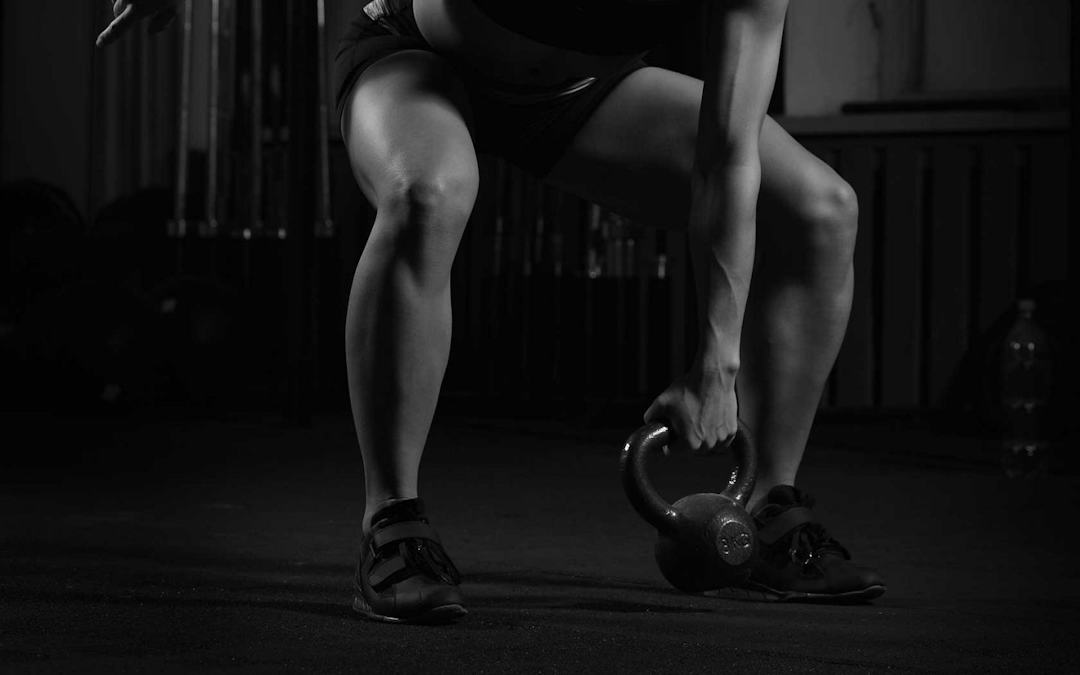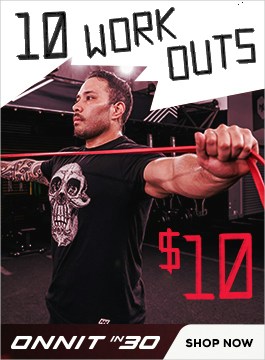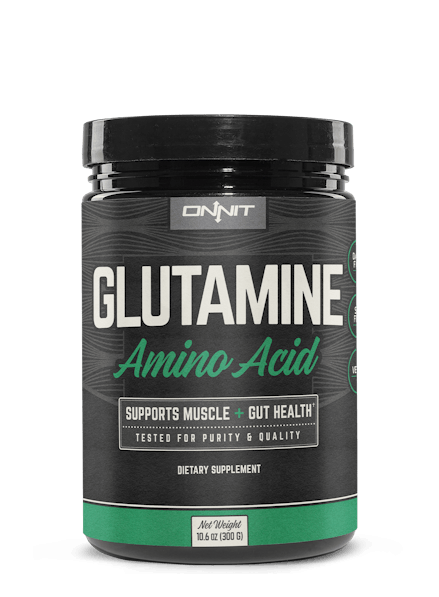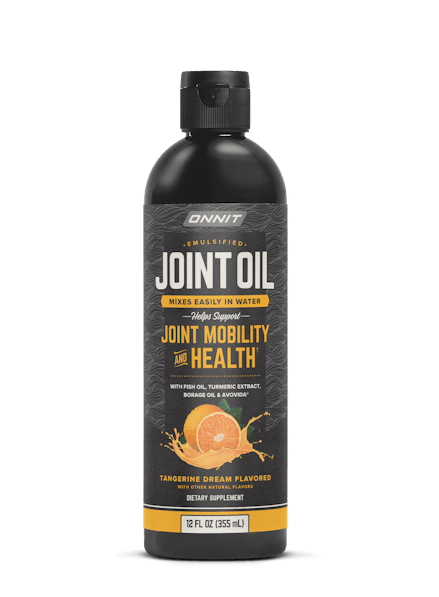Everybody who lifts heavy weights knows that they can help keep your muscles looking young and strong throughout your life.
What no one tells you is how fast they can accelerate the aging of your joints, resulting in pain, limited mobility, and a poorer quality of life as you get older—the very things you started working out to prevent.
It’s a cruel twist of fate, but if you end up with a bad back, achy knees, and a sore shoulder from lifting, you have only yourself to blame.
The problem isn’t weight training itself, it’s performing it the way most people do: going too heavy, too often, and dogmatically insisting on using exercises that take more out of you long-term than they give back.
Your ego lights a long fuse that burns down to injury and, at worst, a premature retirement from the workouts you love.
But you don’t have to end up a bitter old meathead who can’t get out of a chair without groaning and waxes nostalgic about the weights he “used to” lift.
You can build muscle, get stronger, and avoid joint trauma with a few simple strategies.
Drop your ego like a heavy power clean and read on.
3 Ways To Build Strength Without Wrecking Your Joints
Blow Up With Landmines
There’s no law stating that to get big, strong, and powerful you must press, squat, deadlift, clean, and snatch with a barbell. Some people flat out aren’t built to do conventional barbell exercises, and many more don’t do them properly—so if you’re a square peg, don’t jam yourself into a round hole. If you’re tired of getting hurt (or just getting nowhere) with barbell exercises, the landmine is for you.
The landmine is a piece of equipment that looks like home plate on a baseball diamond. It has a long metal cylinder attached that swivels. By loading one end of a barbell into the cylinder, you can instantly expand your repertoire of exercises tenfold. It will completely change the way you think of barbell training, making it much safer and more user-friendly, especially if your form on conventional barbell lifts is a little whack. (And if you don’t have a landmine apparatus, wedging the bar into a corner works too.)
The most famous example of the landmine at work is the landmine press. Hold the bar by the end of one sleeve with one hand and stand with feet staggered. Press the bar from shoulder level to overhead at about a 45-degree angle. If you’re a lifter who can’t do a conventional military press in a straight path, the angle the landmine has you press at will allow you to go through a full range of motion safely. You’ll also be able to do it without hyperextending your lower back (many bend backward on overhead presses when the weight gets heavy).
“The landmine drives upward rotation of the scapula,” says Sam Sneed, D.C., owner of Next Level Chiropractic in Austin, TX. This activates the muscles that safely anchor the shoulder blades to the back of the rib cage, helping take pressure off the shoulder joints. “You also get a lot of anti-lateral flexion work,” says Sneed, and that means core activation. “That bar is trying to tug you down to one side and your core has to resist it.”
The landmine works similarly for squats. Hold the end of the bar at chest level with both hands—similar to a goblet squat—and then begin your descent. The weight will act as a counterbalance, helping you stay upright as you activate your hips so you can sit deeply into the squat. You can’t bend forward or the bar will poke you in the chest, so it reinforces good squat form. If you’re used to bending forward on back squats, putting pressure on the discs in your lower back, the landmine is the perfect substitute.
The following is a short list of exercises the landmine can be used for in targeting each major body part.
Chest/shoulders: landmine press, floor press, lateral raise
Back: One-arm row (elbow in), one-arm row (elbow out), T-bar row
Core: Russian twist [note that virtually all landmine exercises work the core hard automatically]
Legs: Squat, deadlift, RDL, single-leg RDL, lunge
Also, note that just because you’re loading weight onto only one end of the bar doesn’t mean you’re doomed to train “light.” For one thing, landmine exercises are so challenging and inclusive of so many muscles that you won’t have to go very heavy in the first place to see results, but that doesn’t mean you physically can’t. “I think you can get strong as an ox using the landmine,” says Sneed.
Take A Supplement
Good nutrition can go a long way toward optimizing joint health in spite of rigorous training. Avocado soy unsaponifiables (ASU) are a vegetable extract made from avocado and soybean oils. A study in the Journal of Rheumatology found that ASU inhibited the breakdown of cartilage and promoted its repair. According to research, the efficacious dose seems to be 300 milligrams daily.
Turmeric, a spice popular in Indian cooking, is another good choice. It contains curcumin, a chemical with free-radical scavenging properties. Curcuminoids help the body remove free radicals that could otherwise damage the connective tissues. Most authorities recommend supplementing with 1.2–1.8 grams of turmeric per day to consume a significant amount of curcuminoids, although studies have shown you can safely take much more.
Of course, the benefits of fish oil for joint health have been well established. Fish oil contains the omega-3 fats eicosapentaenoic acid (EPA) and docosahexaenoic acid (DHA), which may help with joint mobility as well as stronger bones, apart from offering a myriad of other health benefits for the brain, heart, and skin. The World Health Organization recommends taking 200 to 500 milligrams of EPA and DHA (combined) every day.
Keep Tension On The Muscles
Cutting your range of motion a bit short on reps isn’t necessarily “cheating” an exercise—in fact, it’s one of the best ways to spur gains. “Spending time under tension is key for muscle growth,” says Jim “Smitty” Smith, C.P.P.S., a strength coach and owner of dieselsc.com. “And you lose tension in the muscles when you lock the joints out,” because the brunt of the load is transferred onto the joints and connective tissues. Avoiding full extension of your elbows, knees, and hips has the added benefit of reducing wear and tear on your joints.
Go just short of lockout on all but your big strength exercises, such as squats, deadlifts, and bench presses. To maximize strength, “you need to lock out,” says Smitty. “You need to reset between reps to keep your form tight.” But for more muscle-focused exercises such as lunges, curls, and dumbbell/kettlebell presses, do your reps while keeping muscle tension in mind. The constant tension will reduce the weight you’re able to lift, but that’s a good thing in the long run. Dr. Sneed says: “Keeping the weight down a little bit and really feeling the muscles you’re trying to work versus moving the weight at any cost is more joint-friendly.”



)








